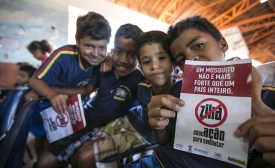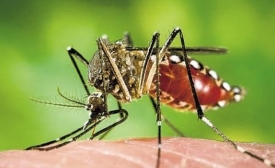zika
The Honduras Red Cross (HRC), the International Federation of Red Cross and Red Crescent Societies (IFRC), in partnership with Save the Children, and thanks to the generous support of the United States Agency for International Development (USAID), are currently conducting a Knowledge Attitudes and Practices (KAP) baselines for the Community Action on Zika (CAZ) project.
Zika has faded from the media spotlight in recent months, but public health officials are gearing up for the virus to resurface as the summer brings warmer weather and mosquitos. The virus is linked to serious birth defects in babies of mothers who were infected while pregnant. But global health experts warn that the infectious disease and others like it will be much more difficult to contain in the future as Trump moves ahead with the reenactment and expansion of the Mexico City Policy, a ruling that blocks U.S.
Government of Canada invests in three teams of Canadian and Latin American and Caribbean scientists to help address unanswered questions about Zika virus [...] “This initiative is key to helping protect populations in the Americas and Canada from Zika and other related diseases. This funding will allow leading researchers from Latin America and Canada to collaborate on cutting-edge research, discovering new knowledge and tools to more rapidly detect, respond and control the virus.”
In an earlier post, I speculated that preventing a Zika virus epidemic would rally transnational diaspora organizations. Since then, concern has grown among U.S.- and Canadian-based diasporans, especially those with roots in Brazil, Puerto Rico, the Dominican Republic, Haiti, and other Latin American countries. Caribbean American and global media are featuring stories and public service announcements on the outbreak, but so far, I have observed no major non-governmental diasporan response.

Taking advantage of partnerships to stop the spread of Zika.
An innovative program by the U.S. Department of Agriculture (USDA) is empowering student scientists to track the spread of the Zika virus in the United States.








